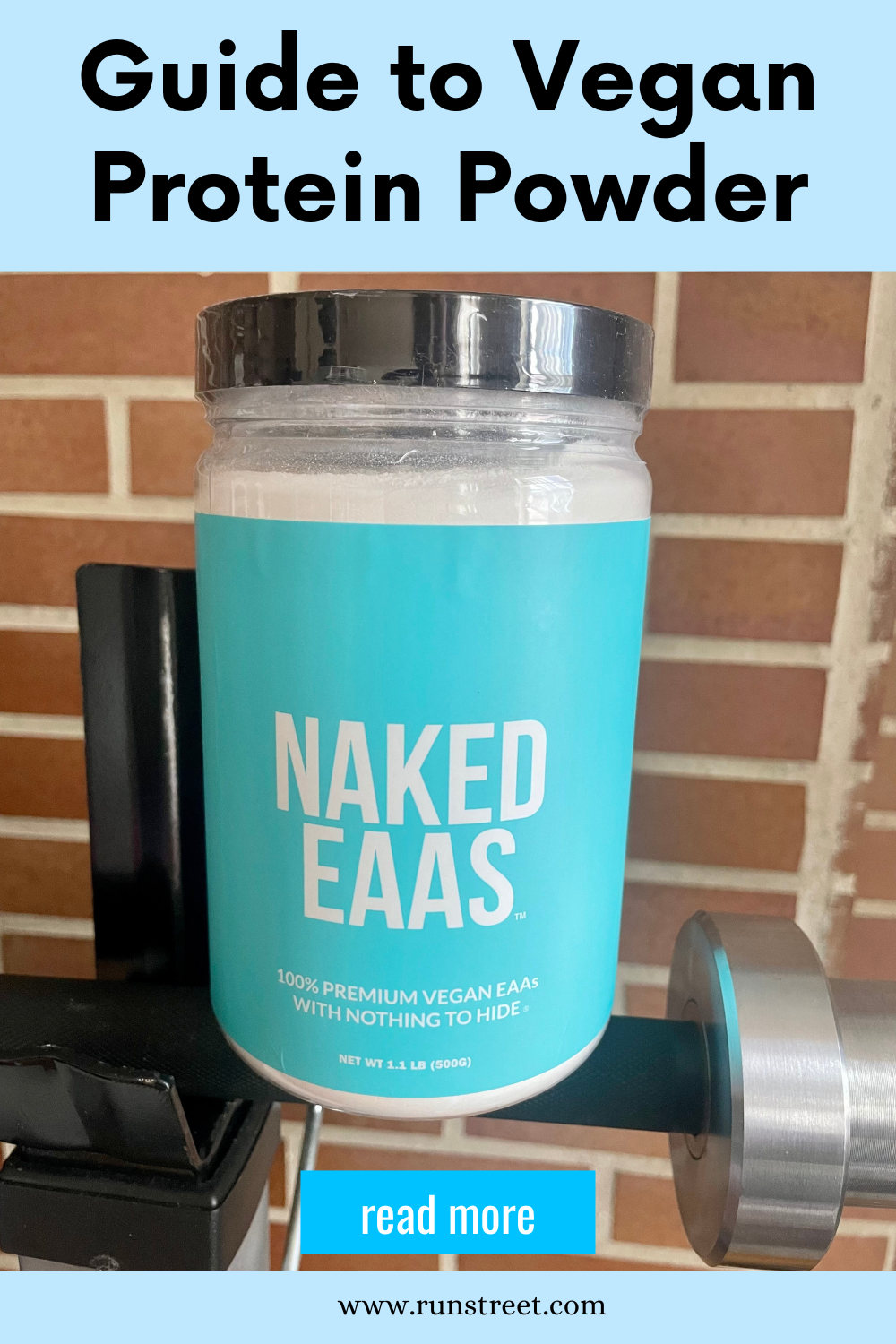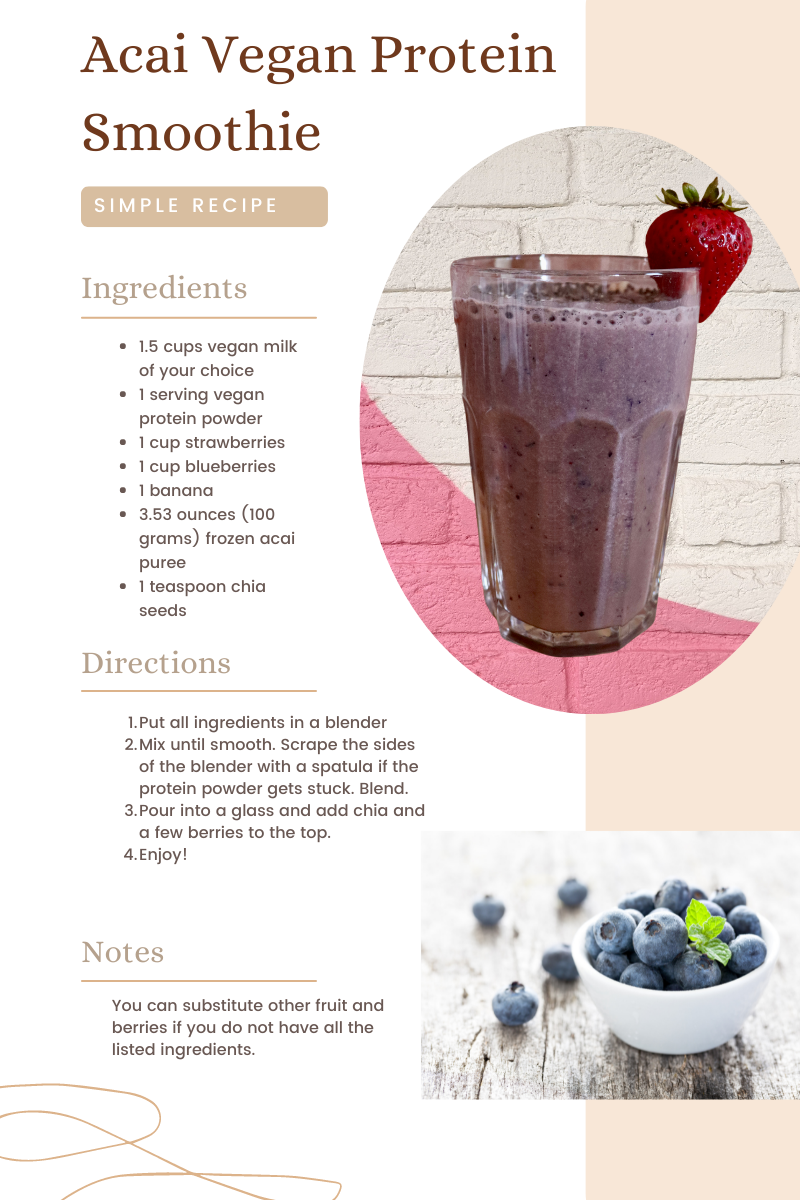Guide to Vegan Protein Powder
By Marnie Kunz
In Partnership with Naked Nutrition
If you’re looking for vegan protein powder, you may be overwhelmed by all of the options and terminology. This guide will break down what vegan protein powder is as well as the benefits and drawbacks of different ingredients. Whether you want to build muscle or feel more satiated from your meals, vegan protein powder can help. Protein also helps speed up muscle recovery after tough workouts. If you’re a vegan, getting enough protein to maintain an active lifestyle can be a challenge, but luckily there are so many options for plant-based protein powder.
What Is Vegan Protein Powder?
Vegan protein powder uses non-animal ingredients, including nuts, grains, seeds, and beans to deliver protein. Most vegan protein powders - as well as other types of protein powder - have 20 to 30 grams of protein per serving. The American Council on Exercise recommends consuming 20 to 30 grams of protein either before or after a workout for the best fitness benefits.
Eating enough protein will help you maximize the benefits of your workouts by building and preparing muscle tissue and speeding up recovery.
Benefits of Vegan Protein Powder
People take plant-based protein powder for the many benefits of protein. Protein helps build and repair muscles, improves workout recovery, and makes you feel more full. Whether you’re working on weight management or need to satiate your hunger after a tough weightlifting workout, vegan protein powder can help you meet your protein needs without having to cook or search for protein-rich meal ideas.
Also, whether you’re a vegan or an animal lover, vegan protein powder does not use animals in any way so your conscious can rest assured that your protein powder is cruelty-free. When you are looking for vegan protein sources, different powders have different ingredients and some are better than others.
Plant-Based Protein Powder Ingredients
Different vegan protein powders have different sources of protein, with some of the common ones derived from peas, seeds, grains, nuts, and soy. Soy protein is one to watch for if you have a sensitive stomach or soy allergies. Soy can cause mild stomach and intestinal issues such as bloating, constipation, and nausea. Some people also have allergic reactions to soy, which can manifest as a rash, itching, and breathing problems.
A few other ingredients to avoid when you are buying plant-based protein powder include added sugar (especially in high amounts over a few grams), and additives like gums - guar gum and xanthan gum. These processed fillers can be hard to digest and they don’t add anything useful to the protein powder. In general, the fewer ingredients in your protein powder, the better.
Essential Amino Acids
Essential amino acids are the building blocks of protein that cannot be made by the body but must be consumed for basic body functions. The nine essential amino acids include histidine, isoleucine, leucine, lysine, methionine, phenylalanine, threonine, tryptophan, and valine. The majority of plant-based foods do not contain all essential amino acids. But, the good news is you can get essential amino acids from certain vegan protein powders.
I like Naked EAAS for a vegan protein boost. Naked EAAS is a vegan protein powder that includes fast-absorbing essential amino acids that help with muscle repair and recovery and improves athletic performance. In keeping with the Naked brand, Naked EAAS do not have any additives or sugar and the protein powder is gluten-free and soy-free.
Branched-Chain Amino Acids
Branched-chain amino acids (BCAAs) are also components of protein that are vital nutrients. BCAAs include leucine, isoleucine, and valine. Branched-chain amino acids are found in dairy, meat, and legumes. BCAAs offer many fitness benefits, including stimulating muscle growth, reducing muscle soreness, and cutting down on muscle fatigue.
Naked BCAAs is a vegan protein powder with pure BCAAs, including leucine, isoleucine, and valine. There is no added sugar or preservatives in the powder and it’s soy-free and GMO-free.
How to Use Vegan Protein Powders
Once you’ve found a plant-based protein that suits your needs, you may be wondering how to use it. There are unlimited ways you can use protein powder - from adding it to your baked goods to adding vegan protein powder to your favorite snacks.
One of the easiest ways to get your vegan protein boost is to make a smoothie. You can use a plant-based liquid base such as oat milk or almond milk (I love almond milk because it’s low in sugar and budget-friendly), and then add your favorite fruits and blend. You can also add almond butter, peanut butter, and chia seeds to pack in even more protein.
I’ve included one of my favorite protein shake recipes here, for a vegan acai fruit smoothie. Also, check out my post on Protein Smoothie Recipes for the Best Workout Recovery for more of my fave protein smoothie recipes.
Have you tried vegan protein powders? Which ones are your favorite? Share your healthy eats with me on Instagram at @Runstreet.😊
Related Posts: Protein Smoothie Recipes for the Best Workout Recovery, Benefits of Whey Protein and How to Use It, Guide to Organic Food, Post Workout Snack Ideas
Marnie Kunz is a NASM-certified trainer and USATF- and RRCA-certified running coach and the creator of Runstreet Art Runs, which bring together communities through running and street art. She is a Brooklyn resident, Akita mom🐕, and writer. You can follow her running and training at @Runstreet Instagram.




